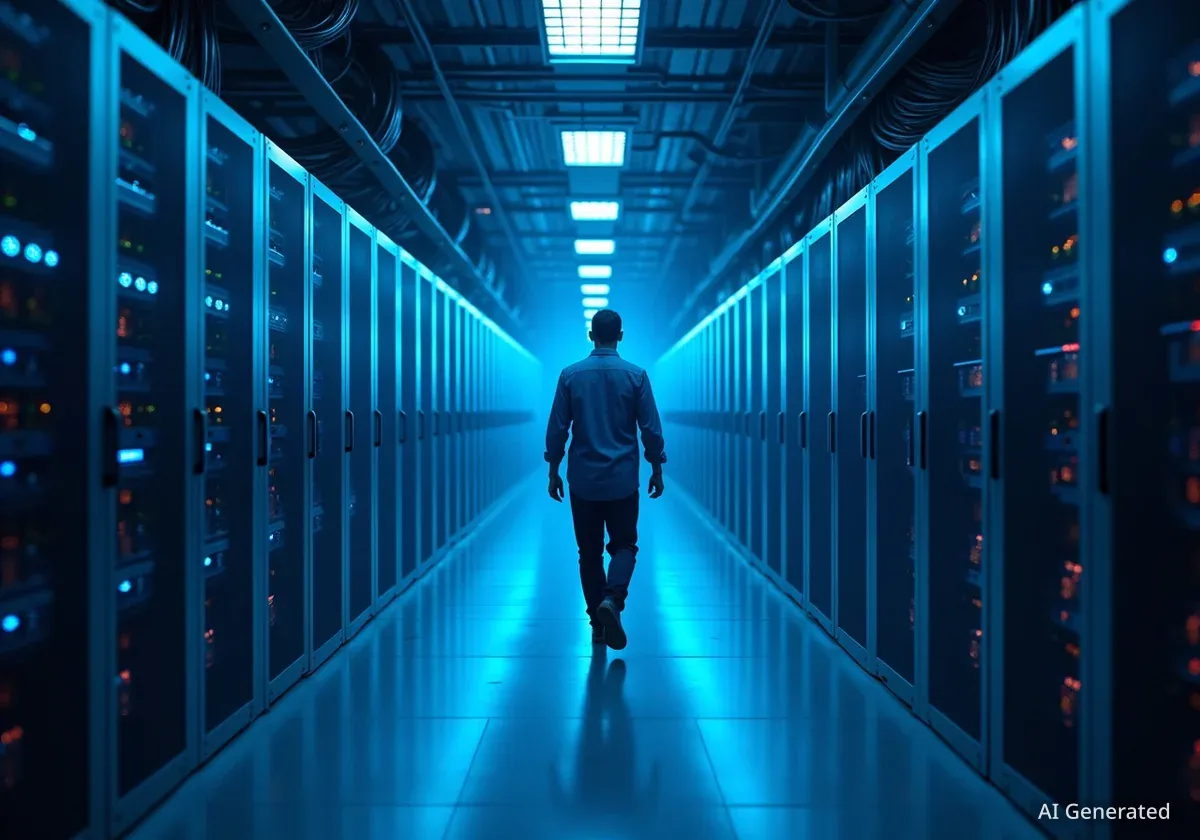Recent technology developments across Asia highlight significant shifts in artificial intelligence, digital infrastructure, and corporate strategy. In China, a university has utilized Huawei's hardware to modify a major AI model to align with local content regulations. Meanwhile, India is considering substantial tax incentives to boost its data center industry, and Samsung has announced a massive five-year hiring plan.
Key Takeaways
- Zhejiang University used Huawei's Ascend 1000 accelerators to retrain the DeepSeek-R1 AI model for content compliance in China.
- India's government is discussing a potential 20-year tax holiday for new data center construction to promote digital self-sufficiency.
- Samsung revealed plans to hire 60,000 new employees over the next five years, focusing on talent acquisition and new technology development.
- In Afghanistan, the Taliban has banned fiber optic internet in the Balkh province, citing efforts to curb immoral behavior.
Huawei Hardware Used to Create Compliant AI Model
Huawei recently disclosed a collaboration with China's Zhejiang University to create a modified version of the DeepSeek-R1 artificial intelligence model. The project utilized Huawei's proprietary Ascend 1000 AI accelerators to refine the model's output, ensuring it aligns with China's content guidelines.
The retrained model, named DeepSeek-R1-Safe, was developed using a post-training framework. This process adjusts the AI's behavior without altering its core architecture. The university reported significant success in this adaptation.
Achieving High Compliance with Minimal Performance Impact
According to the university's announcement, the DeepSeek-R1-Safe model demonstrated a nearly 100 percent success rate in avoiding prohibited content. The training targeted 14 specific categories of content, including politically sensitive topics, toxic speech, and incitement of illegal activities.
Impressively, these safety improvements were achieved with only a one percent reduction in the model's overall performance compared to the original DeepSeek-R1. The university also noted that the retrained model is more resistant to "jailbreaking," a term for techniques used to bypass an AI's safety filters.
Performance Comparison
The joint project reported that DeepSeek-R1-Safe outperformed Alibaba Cloud's Qwen model in its ability to generate responses that comply with Chinese content regulations, marking a significant achievement for the Huawei-powered initiative.
India Considers 20-Year Tax Holiday for Data Centers
The Indian government is reportedly exploring a major incentive to expand its domestic digital infrastructure. Draft plans discussed last week propose a 20-year tax holiday for developers who build new data centers in the country.
This potential policy is part of a broader national strategy to achieve technological self-sufficiency. The government has already invested heavily in digital services, broadband infrastructure, and the promotion of online platforms.
Driving Sovereign AI and Digital Growth
India's technology policy emphasizes developing sovereign capabilities, including a dedicated fund for creating its own AI capacity. A tax holiday could significantly accelerate private investment, encouraging local and international companies to build the necessary infrastructure to support this goal.
The move comes as demand for data services in India continues to grow. While major global hyperscalers already operate facilities in the country, the proposed tax incentive aims to spur a new wave of development. Just last week, Equinix announced the opening of its first International Business Exchange data center in Chennai, India’s fifth-largest city, underscoring the market's potential.
Samsung Plans Major Hiring Spree and Health Tech Innovation
South Korean technology giant Samsung has announced an ambitious plan to hire 60,000 new staff over the next five years. This move signals a significant expansion and investment in future talent.
To support this goal, the company intends to increase the number of internships available to university students. This program will serve as a primary pipeline for identifying and recruiting promising new talent.
Focus on Talent and Health Technology
Samsung will also continue its sponsorship of South Korea’s National Skills Competition, using the event to scout for skilled technical professionals. This underscores the company's commitment to securing top-tier expertise in a competitive global market.
Beyond hiring, Samsung is also venturing further into health technology. The company is developing systems that may help detect early signs of Alzheimer's disease. The technology analyzes subtle changes in a person's smartphone usage, including:
- Keyboard input speed
- Messaging patterns
- Call frequency
- Vocal patterns
By monitoring these cognitive indicators over time, the system aims to identify early markers of cognitive decline, potentially enabling earlier intervention.
Other Technology News from Across the Region
Several other notable technology-related events have occurred recently in Asia, ranging from internet restrictions to new product launches.
Taliban Ban Fiber Internet in Afghan Province
In Afghanistan, the Taliban government has reportedly banned internet access via fiber optic cables in the province of Balkh. The stated reason for the ban is to prevent the spread of what it deems "immoral behaviour."
Authorities have promised to establish an alternative network using a different physical infrastructure. In the meantime, residents still have access to mobile internet services, though many have reported them to be slow and unreliable, according to the Associated Press.
MSI Releases Artistic Laptop Edition
In Taiwan, computer hardware company MSI has collaborated with the estate of Japanese artist Hokusai to create a unique laptop. The Prestige 13 AI+ Ukiyo-e Edition features artwork inspired by the iconic woodblock print, The Great Wave off Kanagawa.
The device combines aesthetics with high performance, offering an Intel Core i9 processor, a 13.3-inch 2.8K OLED display, 32GB of memory, and a battery designed to last all day. This launch targets a niche market of consumers who value both design and powerful hardware.





